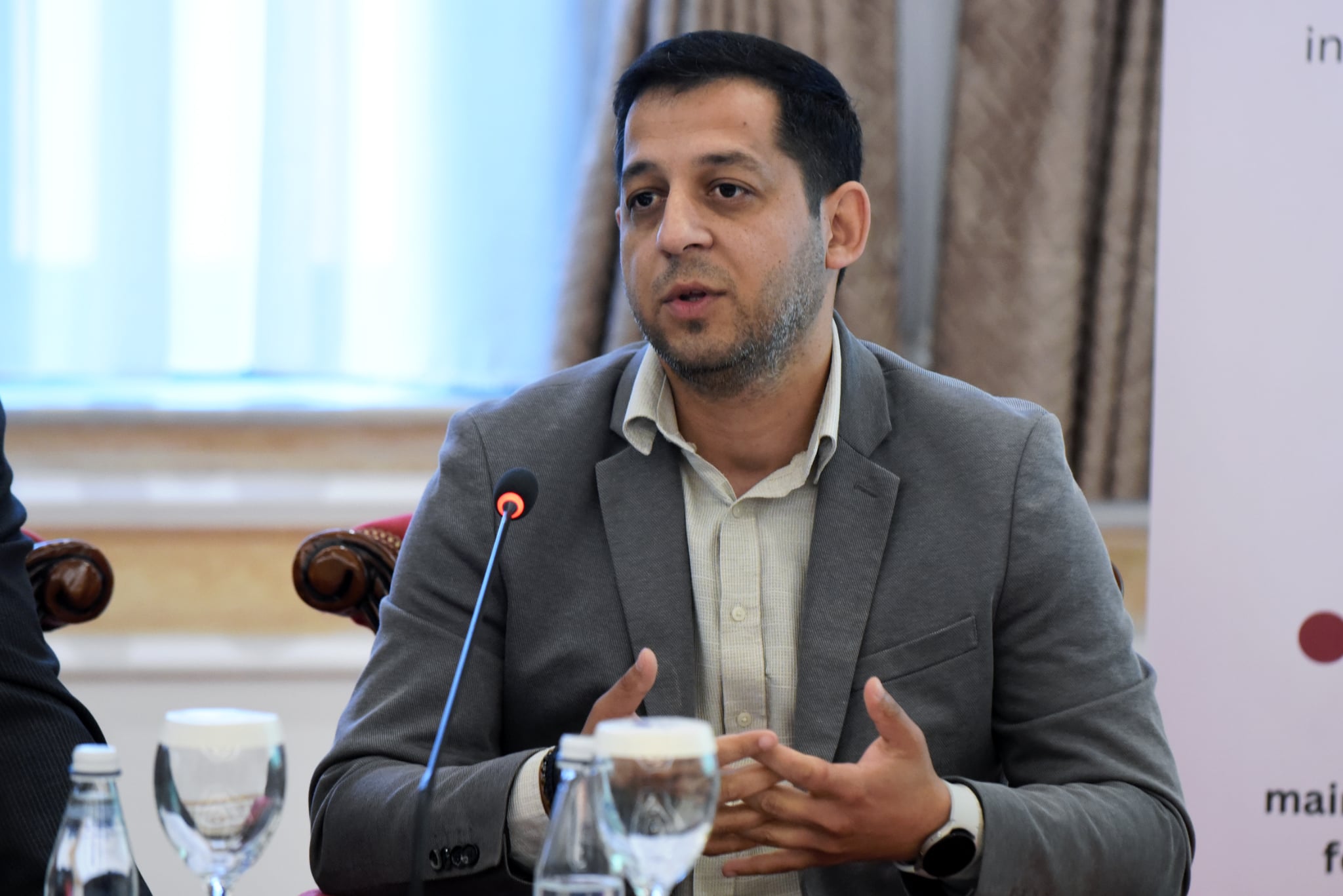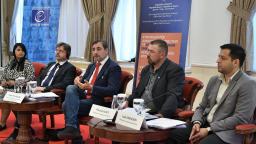
“Advancing the Rights of Roma, Ashkali and Egyptian Communities – Achievements and Challenges”
“Advancing the Rights of Roma, Ashkali and Egyptian Communities – Achievements and Challenges”, delivered at the conference organized by the Office for Good Governance/Office of the Prime Minister in cooperation with the Roma Integration III Project of the Council of Europe, in Prishtina – April 24, 2025:
Distinguished guests, colleagues, and friends,
It is both an honor and a responsibility to address you today at this important conference. As we reflect on the implementation of the Strategy for the Advancement of the Rights of the Roma and Ashkali Communities in Kosovo 2022–2026, I would like to share a perspective that combines realism with measured optimism.
The Strategy, in its vision, aligns with some of the most progressive regional and international commitments, embracing the EU Roma Framework and the Poznan Declaration. However, our implementation has not kept pace with our ambitions.
Voice of Roma, Ashkali and Egyptians, in a report on achievements and challenges in inclusion—based on interviews and analyses in several municipalities—reveals the core challenge of implementation: a serious lack of inter-institutional coordination. In many cases, the Strategy remains more aspirational than actionable, particularly regarding responsibilities at the local versus central level. Monitoring systems are fragmented, reporting mechanisms inconsistent, and data on progress scarce or missing in key municipalities.
Moreover, although some municipalities have taken initiative by drafting Local Action Plans, only seven had adopted them by 2023. Meanwhile, in other municipalities, the Strategy is absent from local agendas, invisible in budgets, and irrelevant in planning processes.
Another finding worthy of deep reflection is the tendency to equate strategic progress with common rights. The fact that some beneficiaries receive social assistance is, in some cases, interpreted as an achievement of the Strategy. Let us be clear: access to social assistance is a universal constitutional right, not the result of strategic implementation aimed at development and affirmative action.
At the core of many of these implementation failures lies a deeper structural issue: antigypsyism.
In this regard, I want to commend the Government's efforts to address this challenge. Although Kosovo’s Government Strategy does not explicitly mention antigypsyism, its manifestations are clearly and unequivocally present in the document.
What is essential is that the Government of Kosovo, albeit informally, has recognized antigypsyism as a critical factor of exclusion. This recognition is not just symbolic; it is strategic. No problem can be addressed without first being named. This recognition represents a critical moment for meaningful action.
Evidence of this growing awareness is Kosovo’s role as host of the Summit against Racial Discrimination, where antigypsyism and its manifestations were openly discussed, and concrete steps proposed to lead the way forward. Furthermore, the Draft Law Against Discrimination now clearly includes antigypsyism, requiring specific measures and institutional responsibility. This is a crucial step in aligning legal frameworks with everyday realities.
Additionally, the Government, in cooperation with civil society, has actively organized public awareness campaigns that challenge prejudice and promote sensitivity. This is vital because antigypsyism is not a minority issue—it is a majority issue. It reflects dominant attitudes and institutional behaviors, and dismantling it requires a deep transformation of both.
Encouragingly, we are beginning to see such change. Although public attitudes remain far from ideal, recent data and field experiences indicate a slow but meaningful transformation. More families now feel comfortable with their children attending school alongside Roma peers. More employers are opening their doors. More friendships are being formed. And in some cases, even interethnic marriages are no longer viewed with suspicion or hostility.
This cultural shift, although still in its early stages, is far from insignificant. It carries great weight in every other aspect of life. When social attitudes change—when the Roma, Ashkali, and Egyptian communities are no longer seen as “the others,” but as neighbors, colleagues, and equals—the door opens to true inclusion. And with inclusion comes opportunity. It becomes easier to enroll in school without stigma. To apply for a job without fear. To access housing, healthcare, and public services without prejudice.
In short, this change dismantles the structural barriers that have long sustained socio-economic inequalities. Social attitudes and institutional approaches are interdependent. One cannot be meaningfully improved without the other.
And although this progress is visible, and although the Strategy rightly plays a central role in building a coherent path forward, it must be acknowledged that many of the tangible successes to date are attributable to civil society, often under the coordination and leadership of local organizations, and primarily funded by donors.
We are proud of this role. But civil society cannot and should not bear the responsibility for systemic change alone.
Now, more than ever, the expectation is for the Government of Kosovo to take on a stronger, more strategic, and financially committed role in realizing the Strategy’s objectives—especially now, in a time of geopolitical uncertainty, when the global momentum for social justice is facing its greatest opposition in decades.
The war in Ukraine and the reorientation of donor countries' priorities have begun to undermine the foundations of many social inclusion programs in Europe, including our region. At the same time, political discourse in the West is alarmingly shifting toward the far right, which has never been sympathetic to equality or justice. The risk is not just stagnation—it is regression.
This is why state ownership of our inclusion agenda must become non-negotiable. The moral leadership of this government cannot be delegated. Nor can we allow the future of these communities to depend on the tides and turns of international political agendas or climates.
Investment in the inclusion of the Roma, Ashkali, and Egyptian communities is not charity. It is responsibility. It is democratic consolidation. It is economic development.
Kosovo has the opportunity not only to meet minimum standards but to lead the region by example—by anchoring inclusion in the state budget.
We have a plan. We have momentum. What we now need is political courage, institutional will, and financial commitment to match our rhetoric.
The next phase of the Strategy, the 2025–2026 Action Plan, must reflect these realities. It must be ambitious not only in goals but also in investment. Because the cost of doing too little is no longer merely social exclusion—it is the erosion of trust, cohesion, and the very values we claim to embrace.
Mr. Isak Skenderi, Executive Director of the organization “Voice of Roma, Ashkali and Egyptians”
Thank you!

